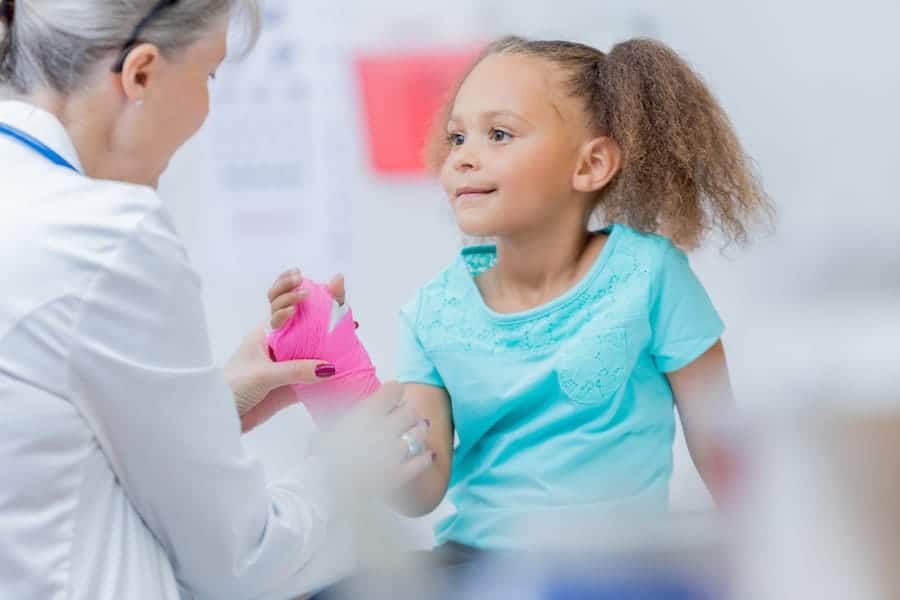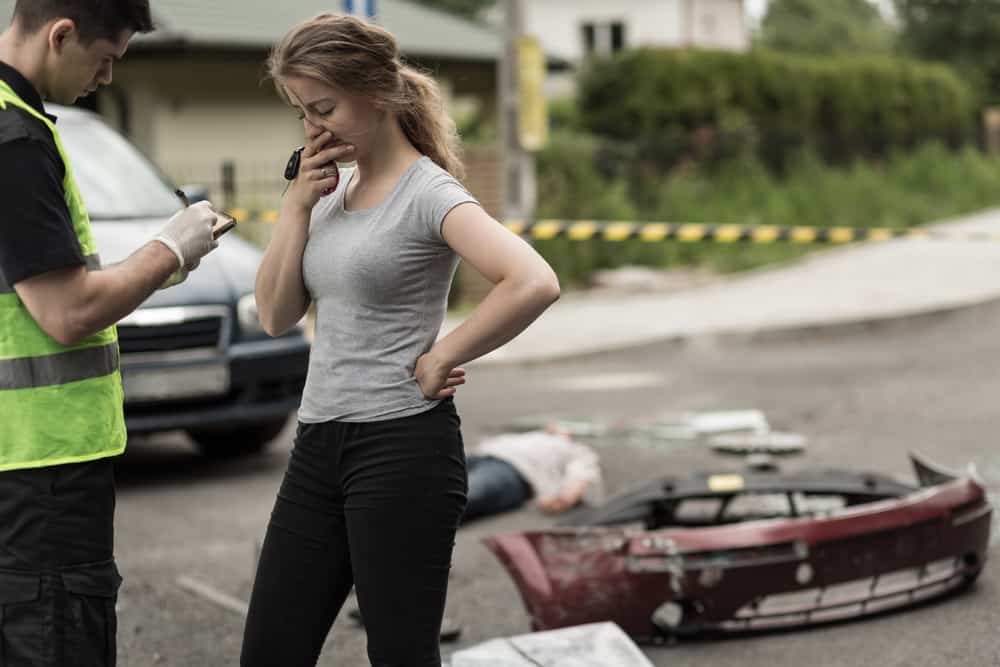
Pediatric Orthopedic Surgeons
Pediatric Orthopedic Surgeons
Development conditions and injuries are common among children since they tend to be active in physical activities that leave them vulnerable to fractures, sprains, and pain. Some children experience growth abnormalities, which is certainly concerning for parents. Many other kids experience some type of injury as a result of falling, getting tackled, or some other sports-related engagement.
Fortunately, when such incidents or situations occur, the team at AICA Orthopedics is ready to help. Our orthopedic surgeons specialize in bone and joint health and create custom treatment plans that support injury recovery or help children overcome developmental concerns. Not every bone injury requires an orthopedic surgeon, as many injuries are often handled in the Emergency room, a pediatricians’ office or even a general orthopedist. However, if a child’s condition requires a pediatric orthopedic surgeon, our office can help.
Get To Know Our Pediatric Orthopedic Surgeons
A pediatric orthopedic surgeon undergoes rigorous training to ensure they are qualified to meet the needs of their young patients. With years of medical training, including medical school, and five years of residency, they are also required to undergo one year of specialized training in pediatric care.
Children and Adult Bones Differ Greatly
Many think that children are just smaller versions of adults when it comes to their bone structure. However, children’s bones are constantly growing and are more elastic than that of adults. A child’s bone has the ability to recover from a break faster than an adult, as well.
Some children who experience bone fractures have not yet developed their language skills, which creates unique challenges when it comes to diagnosing the source of their condition, especially for particular medical staff that is not trained in pediatric care. The pediatric orthopedic surgeons at AICA Orthopedics are all trained to obtain such information without having to rely on the patient’s ability to understand or communicate their pain.
Why Children Are Vulnerable To Orthopedic Injuries
Children’s bodies are constantly growing and understanding their growth process allows our pediatric orthopedic surgeons to treat our patients with a higher level of care. As their bones are constantly changing and growing, the growth plates inside are vulnerable and can easily become damaged. To ensure that your child is able to meet their full potential in terms of physical development, it’s important to be able to easily detect when growth plates are damaged, as an injury in this particular area can create abnormalities and early closure of the growth plate.
Managing Childhood Orthopedic Conditions
For a child to recover completely from an orthopedic injury, family and caregivers must ensure that the child is receiving proper treatment and remains active with the recovery plan provided by their doctor. Some children may need more emotional support depending on the type of injury they have sustained. Common orthopedic injuries among children includes:
- Broken bones
- Spinal deformities (scoliosis)
- Limping and gait abnormalities
- Infections of bones and joints
- Painful joints after sports and activity
Orthopedic Conditions Discovered During Development
There are particular orthopedic conditions that occur within certain points of a child’s development:
Newborn Orthopedic Care
Hearing your newborn has an orthopedic condition can be disconcerting, however, many conditions if diagnosed early can be treated with non-invasive tactics. Research has shown that about 1 percent of all babies in the United States are born with an orthopedic defect. Although not as common, birth injuries resulting in orthopedic trauma as a result of a breech delivery are possible, however far less common. Treatment for these injuries or defects can most likely be conducted surgically since a newborn’s bones are malleable and will reshape without invasive measures.
Hip Dysplasia
When the hip socket doesn’t fully cover the ball portion of the upper thigh bone, hip dysplasia will occur. The joint will not be able to develop normally as the ball-and-socket is not in proper alignment. If this condition is not detected and corrected in the early stages, the hip can be gravely impaired and cause mobility issues for the child in the future as well as the early onset of hip osteoarthritis.
Diagnosing this condition can be done early one and as simple as performing a hip click test to see if the baby’s hip rotates correctly. Hip dysplasia in newborns is usually treated by securing the hip in proper position with a brace called a Pavlik harness.
If this condition is missed in the early stages, an invasive approach may be required to correct the hip.
Clubfoot
This condition occurs when the tendons on the inside and back of the foot are too short which causes the feet to point down and inward.
Due to the child’s bones malleability, a manipulation technique called the Ponseti Method is used to treat this condition less invasively.
This method will allow the ligaments, tendons, and joints to soften and with the use of a plaster cast, the joints are worked into their proper alignment which usually takes around two months. Clubfoot has the best chance for recovery if detected and treated early.
Metatarsus Adductus
This foot deformity causes the foot to appear bean-shaped as it turns inwards. This condition, however, rarely needs treatment as it resolves on its own.
Although this condition usually resolves itself, if it is not fully corrected, children are at risk for developing hip dysplasia. With the foot be in the incorrect position, the hip joint faces added stress and can cause mobility issues and even arthritis. In-home treatment can be done to help correct this misalignment through manipulation exercises but in some cases, surgery may be required.
Orthopedic Treatment for Toddlers
Broken Bones
Children’s bones have immense flexibility and resilience when it comes to fractures. A young child who breaks a bone will heal much faster than an adult as adults may need surgery to stabilize the bone.
Treating broken bones in children is much different than that of adults as children’s healing timeline is measured in weeks rather than months like adults and more than likely children do not need surgery to correct their fracture.
Growth Plates Matter
In children, the growth plate is watched closely throughout the healing process from fractures as the bone cells are quickly dividing and if not healed correctly, long term damage or growth abnormalities can occur. Treating injuries involving the growth plate should only be done by orthopedic specialists who are familiar with the different methods of growth plate treatment. Some treatments for growth plate injuries could be casting to surgery.
Bones That Bend
As children’s bones are flexible, when facing impact they may bend instead of breaking. The pediatric population often sees injuries such as greenstick fractures or buckle fractures. If a child sustains a greenstick fracture, the bone breaks much like a tree branch where only one side is broken. A buckle fracture is when the bone does not separate but buckles.
Treatment for pediatric orthopedic patients should be treated differently to prevent long term issues. Depending on the injury, a child may or may not need to be restricted from participating in certain activities in order to heal correctly.
Helping Children Heal
When a child endures an injury, their life may change while recovering and this can add stress to their lives and cause anxiety and depression. Parents and family members with a child with an orthopedic injury need to provide emotional support in order for their child to achieve a full recovery.
It is important for parents, and caregivers to advocate for their children. Communicate with your child’s orthopedic surgeon and ask questions and address concerns. Orthopedic specialists can explain things about your child’s condition that you may need clarification on and make you feel more comfortable with the recovery process. Also, you know your child the best and know what your child needs so speaking up and addressing concerns about the treatment plan can help your child reach a full recovery.
Some simple tips to help with a child facing an orthopedic treatment:
- Encourage your child to advocate for themselves and address those questions seriously
- Reinforce brave behaviors with praise
- Don’t say “it won’t hurt” unless it won’t hurt
- Be supportive, comforting, and encouraging—a hug and a smile go a long way
Seek Help
When searching for an Atlanta orthopedic doctor for your child’s health concerns, a pediatric orthopedic specialist will be your best option as they have to skillset and knowledge to treat your child’s condition. If your child is in need of a pediatric orthopedic surgeon, our AICA Orthopedics team of doctors can provide you with some of the finest pediatric specialists in the Atlanta area.
Having an injured child can be stressful and the last thing you need is to worry about the level of care your child will receive. Although a child’s body is resilient, healing may take some time and can take a toll on the child and the family. The best thing a parent can do is show support for their child and advocate for the best possible care for them. Call us today to schedule an appointment or to speak with one of our experts about pediatric orthopedic surgery – just dail (404) 855-2141




